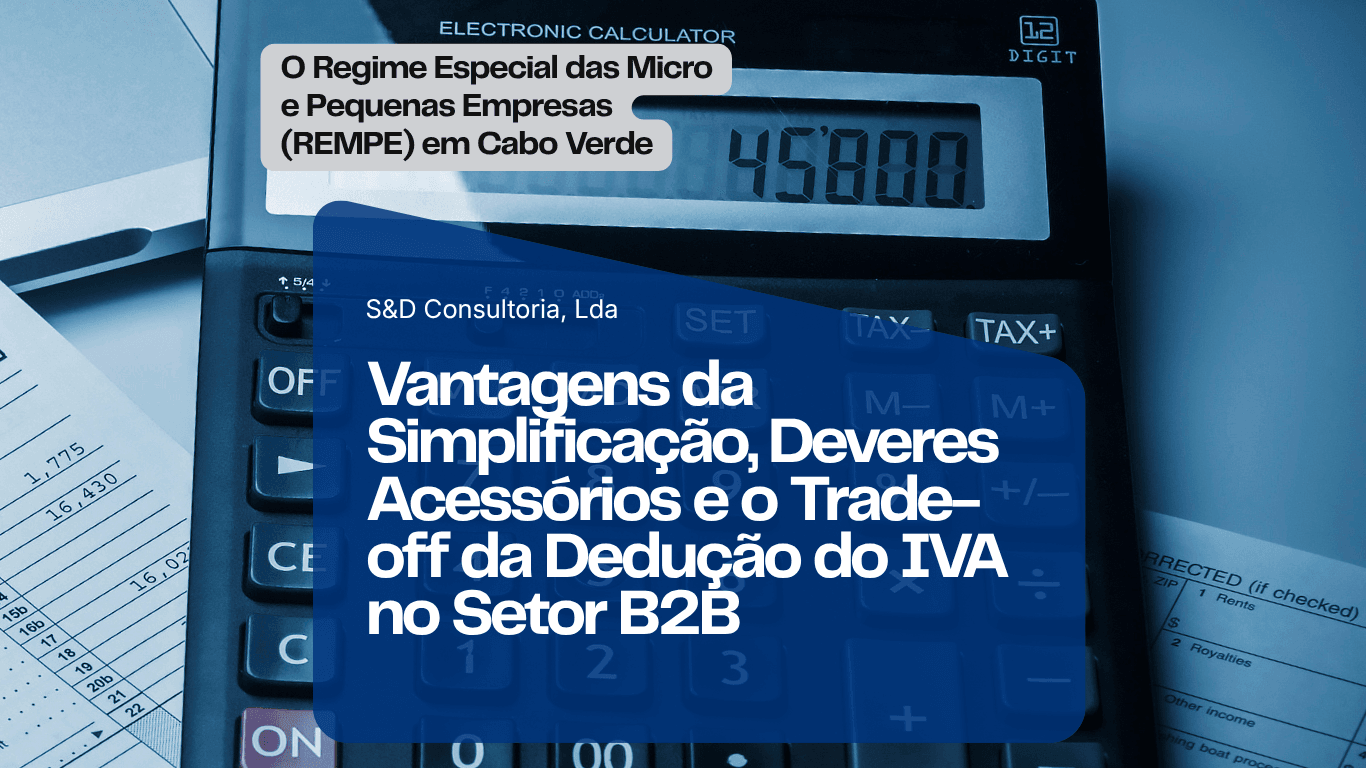

The Consumer Confidence Index (CCI) in Cape Verde, one of the main economic indicators that measures how families feel about their financial situation and the country's economy, registered a negative evolution in the first quarter of 2025. This behaviour reflects the continuation of the downward trend observed at the end of 2024, according to data released by the National Statistics Institute (INE) INE Cape Verde.
In the period under review, the ICC was below the historical average of the series, showing a slight decline in the confidence of Cape Verdean families. This decline is partly attributable to consumers' negative perception of the evolution of the national economy and the increase in prices and unemployment, as reported by those surveyed in the consumer climate survey Trading Economics.
Despite the drop, the indicator remained close to the average of the historical series, suggesting that although there is pessimism about the short term, there are signs of cautious optimism for the future. This scenario is corroborated by the fact that some families show intentions to invest in housing over the next few years, even in a context of economic uncertainty Forbes Lusophone Africa.
Analysis of this indicator is crucial to understanding consumer behaviour and the impact of their expectations on the Cape Verdean economy. This report explores in detail the factors behind the negative evolution of the CCI, its economic implications and the outlook for the coming quarters.
Contents
In the first quarter of 2025, the Consumer Confidence Indicator (CCI) in Cape Verde registered a negative evolution, maintaining the downward trend observed at the end of 2024. According to the National Statistics Institute (INE), the index was below the average of the historical series, reflecting an environment of economic uncertainty that continues to impact Cape Verdean families (Island Express).
Respondents reported a worsening perception of the country's economic situation compared to the same period last year. This deterioration was accompanied by an increase in prices and unemployment, factors that contributed to a decrease in confidence in the short term (Forbes Lusophone Africa).
Despite the negative evolution of the CCI, the families surveyed indicated that the economic situation of their households had improved slightly over the last 12 months. This contrast between the perception of the domestic economy and the national economy suggests that households are adjusting their expectations based on personal experiences, while continuing to face macroeconomic challenges (Island Express).
However, households' ability to save has also seen a positive evolution. Compared to the first quarter of 2024, the number of households that consider it possible to save increased slightly, while the percentage of those that consider saving unfeasible fell by 23.5 percentage points (Forbes Lusophone Africa).
Prices and unemployment were identified as critical factors contributing to the decline in consumer confidence. Over the last 12 months, respondents reported significant increases in both areas, which reinforced the perception of economic fragility. This scenario is consistent with the trend seen in previous quarters, where inflation and difficulties in the labour market continued to put pressure on household budgets (Island Express).
Although the CCI registered a negative evolution, the index remained above the average of the historical series in certain periods. This indicates that, despite the difficulties, Cape Verdean families still have a moderate level of confidence. However, the continuous decline in the index over seven consecutive quarters reflects a scenario of prolonged economic uncertainty, which may make it difficult for confidence to recover in the medium term (Trading Economics).
Despite the negative evolution in the first quarter of 2025, those surveyed showed some optimism for the future. According to INE data, the financial situation of families and the country's economy are expected to improve over the next 12 months. This positive expectation can be attributed to government initiatives and the gradual recovery of key sectors such as tourism, which plays a crucial role in the Cape Verdean economy (News of the World).
In the first quarter of 2025, the Consumer Confidence Index (CCI) in Cape Verde showed a negative evolution compared to the same period in 2024, maintaining the downward trend seen at the end of 2024. The indicator was below the average of the historical series, reflecting a slight decrease in the confidence of Cape Verdean families. This negative performance was highlighted by the National Statistics Institute (INE), which pointed out that, despite the deterioration, the economic situation of households improved slightly over the last 12 months, while the perception of the national economy continued to deteriorate (Island Express).
Compared to the fourth quarter of 2024, when the ICC registered 13 points, the first quarter of 2025 showed a continuation of the downward trend, but with less intensity. This behaviour reflects the persistence of adverse economic factors, such as rising prices and the perception of a national economy in difficulty.
The performance of the CCI in the fourth quarter of 2024 marked a significant drop, falling from 16 points in the third quarter to 13 points at the end of the year. This decline was attributed to a combination of factors, including rising inflation and global economic uncertainty, which affected Cape Verdean consumer confidence (Trading Economics).
In the first quarter of 2025, although the CPI continued to fall, the magnitude of the drop was smaller, suggesting a possible stabilisation of confidence at low levels. This behaviour can be interpreted as a reflection of Cape Verdean families adapting to adverse economic conditions, but with no clear signs of recovery.
Compared to the same period last year, the CCI in the first quarter of 2025 showed a negative evolution. In the first quarter of 2024, the indicator was above the historical average, reflecting cautious optimism driven by expectations of a post-pandemic economic recovery. However, continuing economic challenges, such as the rising cost of living and global instability, reversed this positive trend throughout 2024, culminating in the deterioration seen at the start of 2025.
This contrast highlights a significant shift in consumer sentiment from moderate optimism to a more pessimistic outlook, influenced by factors such as persistent inflation and the slowdown in economic growth.
Historically, the CCI in Cape Verde averaged 14.06 points between 2009 and 2024, with a maximum of 24 points in the first quarter of 2010 and a minimum of 4 points in the fourth quarter of 2015 (Trading Economics). In the first quarter of 2025, the indicator was below this average, reflecting a confidence level below the historical standard.
The comparison with the historical average highlights the seriousness of the current situation, indicating that Cape Verdean consumers face significant economic challenges that negatively affect their confidence. This below-average performance also emphasises the need for effective economic policies to restore confidence and boost consumption.
Analysing long-term trends reveals that the CCI in Cape Verde has faced significant fluctuations, influenced by global and local economic events. For example, the index reached its highest point in 2010, during a period of robust economic growth, and its lowest point in 2015, during a severe economic crisis.
In the current context, the downward trend observed since the end of 2024 suggests that consumers continue to face economic uncertainty. However, expectations for the coming quarters could be moderately positive if economic conditions improve and government policies manage to mitigate the impacts of inflation and stimulate economic growth.
This detailed analysis of the CCI's performance in the first quarter of 2025, compared to previous periods, provides a comprehensive overview of the challenges and opportunities for the Cape Verdean economy. Continued monitoring and the implementation of effective policy measures will be crucial to restoring consumer confidence and promoting sustainable economic development.
The decline in consumer confidence in Cape Verde observed in the first quarter of 2025 has a direct impact on domestic consumption, which is one of the main drivers of the economy. When consumers perceive an uncertain economic environment, they tend to reduce their spending on non-essential goods and services, prioritising savings or paying off debts. This behaviour results in a contraction of domestic demand, negatively affecting sectors such as commerce, catering and services, which depend heavily on private consumption.
According to the National Statistics Institute (INE)The majority of Cape Verdean families reported a negative perception of the national economy over the last 12 months, which has contributed to a reduction in consumption. This scenario is aggravated by rising prices and unemployment, which put pressure on family budgets and limit consumption capacity. The fall in the Consumer Confidence Index (CCI) to 13 points in the fourth quarter of 2024, as reported by the Trading Economicsreflects this trend of economic retraction.
Reduced consumer confidence also has repercussions on the labour market, since the decline in domestic consumption leads companies to adjust their operations, often by cutting costs, which can include layoffs or hiring freezes. This cycle creates a negative feedback effect, where rising unemployment further reduces consumer confidence, perpetuating the economic contraction.
According to INEAccording to the survey, unemployment was one of the most worrying factors over the last 12 months. This increase in unemployment, coupled with inflation, contributes to the perception of economic instability, which affects both workers and employers. The tourism sector, which accounts for around 25% of Cape Verde's Gross Domestic Product (GDP), is particularly vulnerable to these fluctuations, since the reduction in tourist demand has a direct impact on employment levels in the sector.
The negative evolution of the CCI also influences the savings and investment patterns of Cape Verdean families. Although some families have reported improvements in the economic situation of their households, as mentioned by the INEThe majority are still struggling to save due to rising living costs and economic uncertainty.
Reduced confidence has led many families to postpone investment decisions, such as buying a home or purchasing durable goods, which are often seen as long-term financial commitments. This behaviour, although understandable in a context of uncertainty, limits the growth of sectors such as construction and the property market, which depend on family investments. However Diário Económico points out that there is an increase in the number of families considering investing in housing over the next two years, which could signal a gradual recovery in confidence.
Reduced consumer confidence also puts additional pressure on public services and government policies. As unemployment rises and consumption falls, tax revenue tends to fall, limiting the government's ability to fund social programmes and public investment. This scenario could further exacerbate economic and social inequalities, especially among the most vulnerable populations.
To mitigate the impacts of the crisis of confidence, the Cape Verdean government has been implementing measures to stimulate the economy and restore consumer confidence. These include initiatives to support the tourism sector, which is crucial to the country's economic recovery, and social assistance programmes to alleviate the impact of inflation on low-income families. However, the effectiveness of these measures will depend on the government's ability to balance budgetary constraints with the need for economic stimulus.
In addition to the economic impacts, the negative evolution of consumer confidence has significant effects on the psychological and social well-being of Cape Verdean families. Economic uncertainty and rising unemployment contribute to higher levels of stress and anxiety, which can affect people's mental health and quality of life.
Reduced confidence can also weaken the social fabric, as families and communities face increasing challenges to maintain their living standards and support the most vulnerable members. This scenario emphasises the importance of public policies that not only address economic challenges, but also promote social and psychological well-being.
In short, the negative evolution of the CCI in Cape Verde in the first quarter of 2025 highlights the complexity of the economic and social challenges facing the country. The recovery of consumer confidence will be essential to boost economic growth and improve the well-being of families, requiring an integrated approach that combines effective economic policies with social support measures.
Analysis of the Consumer Confidence Indicator (CCI) in Cape Verde in the first quarter of 2025 revealed a negative trend, reflecting the continuation of the downward trend observed since the end of 2024. This performance was influenced by factors such as rising prices and unemployment, which aggravated the perception of economic uncertainty among consumers. Despite this, there was a slight improvement in households' economic situation and savings capacity, suggesting a partial adaptation to the adverse conditions. However, the ICC remained below the historical average, showing a lower level of confidence than usual, which emphasises the seriousness of the current economic context (Island Express).
The impacts of these negative developments are significant, ranging from a reduction in domestic consumption, which affects key economic sectors, to rising unemployment and pressure on public services. The downturn in confidence also limits family investment and exacerbates social inequalities, while contributing to increased stress and anxiety among the population. To mitigate these effects, it will be essential to implement effective economic policies that promote the recovery of confidence, such as stimulating the tourism sector and measures to support the most vulnerable families. In addition, continuous monitoring of the CCI and adapting public policies to emerging needs will be crucial to restoring economic and social stability in the medium term (Trading Economics).







